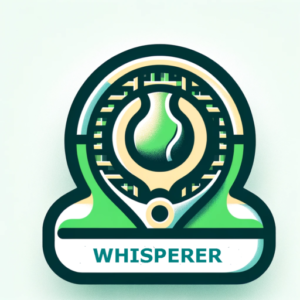Control the Match by Owning Your Rhythm of Play
Using your personal rhythm of play is one of the most effective ways to stay mentally strong and avoid getting thrown off by an opponent’s disruptive tactics.
Your rhythm is like your personal pace or flow of how you move through a match, both mentally and physically.
Here’s how it can help you handle distractions:
1. Establish Your Tempo Early
From the moment the match starts, set a consistent tempo that works for you. Whether it’s how you serve, how quickly you prepare between points, or even the way you walk back to the baseline, keep things steady. This rhythm helps you stay focused, no matter what the opponent is doing to disrupt you.
For example, if your opponent is trying to rush you or slow down play, don’t let it affect your natural rhythm. Take your time when you need it. Bounce the ball a few extra times, walk slowly between points, and stick to your routine. This sends a message that you’re in control, not them.
2. Use Your Routine Between Points
Your rhythm includes what you do between points. This could be fixing your strings, wiping your face with a towel, or simply taking a few deep breaths. By following a consistent routine, you stay grounded and block out distractions.
If your opponent is arguing calls, rushing you, or trying to throw off your focus, your routine acts as a mental reset. It helps you refocus on the next point instead of dwelling on the last one or whatever your opponent is doing.
3. Don’t Let Them Disrupt Your Flow
Some opponents will try to change the pace of the match by taking extra time or arguing about line calls. They want to disrupt your flow and throw you out of your comfort zone. When this happens, stay calm and stick to your rhythm.
If they delay the game, take deep breaths and stay loose. Don’t let their behavior rush or slow you down. You are in control of how you play and how you respond.
4. Control the Pace of Play
When possible, use your rhythm to control the pace of the match. If you prefer a faster game, keep points short, serve quickly, and keep the pressure on your opponent. If you like to take your time, make sure you’re deliberate in how you move between points, giving yourself time to reset mentally.
If your opponent is trying to disrupt this, don’t speed up or slow down to match their pace. Stick to your natural flow.
5. Reset After Every Point
Regardless of whether you win or lose a point, go through your personal reset routine. This might involve taking a few extra breaths, adjusting your strings, or bouncing the ball before you serve. This rhythm helps you leave the last point behind and focus on the next one.
The key is consistency. The more you stick to your rhythm, the less power your opponent has to disrupt you. You’ll feel more in control and mentally focused throughout the match, making it harder for them to break your concentration.
In summary:
– Personal rhythm keeps you focused and blocks out distractions.
– Stick to your routine between points to stay mentally grounded.
– Don’t let your opponent control the pace—you set the tempo.
– Use your rhythm as a mental reset after every point.
By owning your rhythm of play, you take control of the match, no matter what tactics your opponent uses to try to throw you off your game.





Leave a Reply
Want to join the discussion?Feel free to contribute!